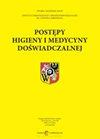生酮饮食对神经系统疾病患者肠道微生物群的潜在影响
IF 0.3
4区 医学
Q4 MEDICINE, RESEARCH & EXPERIMENTAL
引用次数: 1
摘要
人体肠道最重要的功能部分之一是微观肠道屏障。它的功能是确保正确的营养吸收,并防止多种病原体,异种生物和环境毒素。肠道微生物群是肠上皮的组成部分。人类微生物群及其宿主通过多种中间体和代谢物直接或间接地相互作用。一些未被完全消化的膳食脂肪到达肠道的远端,在那里与肠道微生物群发生相互作用。研究表明,以动物产品为基础的饮食提供了更多的饱和脂肪供应,增加了抗胆汁微生物的数量,包括嗜杆菌。拟杆菌和拟杆菌的总数也增加了。长期食用动物性食物有助于形成被称为拟杆菌型的肠道类型。生酮饮食主要以动物脂肪为基础。这种较高的动物脂肪消耗引起的变化与不利的代谢变化有关。然而,越来越多的研究已经证明了生酮饮食在神经退行性和代谢性疾病方面的治疗特性。最近的报告表明,生酮饮食的保护作用高度依赖于肠道微生物群。本文综述了在分析癫痫、阿尔茨海默病、自闭症谱系障碍和多发性硬化症等疾病患者时观察到的生酮饮食对肠道微生物群变化影响之间的相关性。本文章由计算机程序翻译,如有差异,请以英文原文为准。
The potential impact of the ketogenic diet on gut microbiota in the context of neurological disorders
Abstract One of the most important functional parts of a human intestinal tract is the microscopic intestinal barrier. Its function is to ensure the correct nutrient absorption and to protect against multiple pathogens, xenobiotics, and environmental toxins. Intestinal microbiota is an integral part of the intestinal epithelium. Human microbiota and their host interact with each other, both directly and indirectly, via multiple intermediates and metabolites. Some dietary fat that is not fully digested reaches the distal parts of the intestinal tract, where an interaction with gut microbiota takes place. Studies have shown that an animal-product based diet that provides a greater supply of saturated fat increases the number of bile-resistant microorganisms, including Bilophila. The total amount of Alistipes and Bacteroides is also increased. Long-term consumption of animal-based foods contributes to the formation of the enterotype described as the Bacteroides type. The ketogenic diet is mainly based on animal fats. The changes induced by this higher consumption of animal fats are associated with unfavorable metabolic changes. However, more and more research has shown evidence of the therapeutic properties of a ketogenic diet as far as neurodegenerative and metabolic diseases are concerned. Recent reports suggest that the protective effect of a ketogenic diet is highly dependent on the gut microbiota. This review focuses on the correlation between the influence of ketogenic diet on the intestinal microbiota changes observed while analyzing patients with diseases such as epilepsy, Alzheimer's disease, autism spectrum disorder, and multiple sclerosis.
求助全文
通过发布文献求助,成功后即可免费获取论文全文。
去求助
来源期刊

Postȩpy higieny i medycyny doświadczalnej
MEDICINE, RESEARCH & EXPERIMENTAL-
CiteScore
0.60
自引率
0.00%
发文量
50
审稿时长
4-8 weeks
期刊介绍:
Advances in Hygiene and Experimental Medicine (PHMD) is a scientific journal affiliated with the Institute of Immunology and Experimental Therapy by the Polish Academy of Sciences in Wrocław. The journal publishes articles from the field of experimental medicine and related sciences, with particular emphasis on immunology, oncology, cell biology, microbiology, and genetics. The journal publishes review and original works both in Polish and English. All journal publications are available via the Open Access formula in line with the principles of the Creative Commons licence.
 求助内容:
求助内容: 应助结果提醒方式:
应助结果提醒方式:


